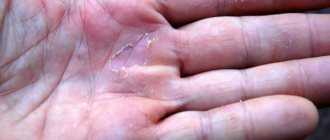Everyone who struggles with excess weight has managed to lose a couple of kilograms at least once in their life. Or even to the desired level. However, few people are able to maintain weight. What's the secret? First of all, in the understanding that after completing the diet, working on yourself and your eating habits does not end. This is not the time to relax! You are more likely to maintain your weight if it remains stable for at least a year: if it does not grow or lose weight, then plus 50-10 kg, then minus. Only then can you confidently say: the weight has been taken. And the following seven tips will help you achieve this.
Recalculate the energy value of the menu
It's simple. During your weight loss phase, you should have been expending more energy than you were getting from food. Now - approximately equalize the “income” with the “expense”. You don’t have to use fancy formulas for this. “If you have a sedentary job and do fitness three times a week, during the weight stabilization stage, consume 30 kcal per kilogram of body weight. That is, if you weigh 60 kg, you need to consume approximately 1800 kcal per day, says Elena Tikhomirova , nutritionist at the SM Clinic. “If you lead a sedentary lifestyle, then you should have 25 kcal per kilogram, and with daily training - up to 35 kcal.”
Increase your caloric intake gradually
By doing this in one fell swoop, you risk also gaining weight in one fell swoop. “Instead, increase the calorie content of the menu once a week by 100-150 kcal due to complex carbohydrates and proteins,” says Elena Tikhomirova. - If during the diet you, say, ate 1400 kcal, then a week after its completion, go to 1500-1550 kcal. Eat like this for seven days. Did you keep the weight off? Add another 100-150 kcal. Have you discovered that you are gaining weight? Return to the energy value of the diet at which your weight remained stable. Next, try to increase physical activity and gradually add calories again. An important point: per 1 kg of your weight you should consume at least 1 g of protein, and the proportion of animal fats should be reduced by consuming dairy products and lean meat and poultry.”
Nutrition
If everything is fine with your health, then you should definitely pay attention to how you eat after any diet, including buckwheat. Many nutritionists notice that when a person achieves the desired results, he very quickly relaxes and stops watching what is on his plate, so how to maintain the result after the diet? When leaving the diet, it is worth remembering some rules that will help maintain the results obtained:
- You cannot increase the size of food you eat;
- You should not abuse those foods that were prohibited during the diet; they should be eaten in very small quantities and sometimes as a reward for something good;
- You need to eat fractionally, that is, in small doses, but every three hours;
- Try to include more foods that contain fiber in your diet;
- Drink more plain clean water, it is better to drink a glass of water before meals;
- Learn to steam dishes from vegetables and lean fish, this will help make your food tasty and healthy;
- It is also very good to replace fatty meat with lean veal and chicken breast;
- Don't overeat;
- Develop the habit of not eating four hours before bedtime;
- You can eat sweets, but it is better in the morning, this period is the most active in the body and this is due to the fact that most likely all the calories received during the day are used;
- Also, many candies and cakes can be replaced with marshmallows, marmalade, marshmallows, souffles and mousses;
- It is very good to drink green tea at least once a day, and adding turmeric to your food will help your metabolism.
Sport
Of course, many will say that you need to do fitness or visit the gym regularly. But if there is no such opportunity, then you should not think that all is lost. Any physical activity is welcome. For example, washing the floor every day without a mop or weeding the grass in the garden is also a very good sport.
You definitely need to move. This could be walking along the stairs instead of the elevator, or evening walks in the park. If you have the opportunity to avoid traveling a couple of stops on public transport, then you should take advantage of it and walk.
Of course, strength training can provide more consistent results. But if you are a wife and mother, then shopping bags and a child in your arms will help you get these strength training without going to the gym.
In order to avoid regaining lost pounds and make your body better, you can:
- Visit the pool;
- Go to the gym;
- Do fitness;
- Sign up for dancing;
- Jog in the mornings;
- Walk more at a brisk pace;
- Go up and down the stairs, ignoring the elevator;
- Wash floors without a mop, in an inclined position;
- Play active games with children.
Lifestyle after diet
After a person who wants to lose weight has fulfilled his dream, his life should completely change and for this he must:
- Monitor your diet, prepare food, carry it with you to maintain fractional meals and avoid all fast food places.
- Move more, play sports, go out into nature more often, ignore the elevator, fall in love with your mother’s garden.
- Be outdoors more often.
- Try to distribute your day so that you don’t have a lot of free time, you can find some hobby or activity of interest.
- Enjoy every day and drive away any depression.
- Avoid stress and take things easier.
- Visit fashion stores with clothes more often, this will always help you keep yourself in good shape.
Analyze which high-calorie foods may cause you to gain weight again
Often we start to gain weight again simply because we can’t resist our favorite treats or we start to indulge in healthy but high-calorie foods like nuts or olive oil. “Analyze which foods are likely to give you extra calories,” says Tatyana Bogdanova , weight loss specialist and psychologist. — Make a list of situations when you can “intercept” them unnoticed. If, for example, you often buy a bag of nuts for your car, you can easily empty it mindlessly while stuck in a traffic jam. But nuts are a very high-calorie product!”
Once you discover which treats can make you gain weight, put them on a special blacklist and check it often. Control your consumption of provocateurs. Agree with yourself that you will eat them no more than 2-3 times a week and in a certain quantity.
How to maintain results after a diet?
Home / Beauty and Health / How to maintain results after a diet?
Imagine a man or woman (it doesn’t matter) whose dreams (goals) are to lose weight, burn fat, and become the owner of a beautiful, slender figure. Introduced? Ok, now imagine that these people finally achieved what they wanted. That is, they lost weight (burned fat, removed their sides, belly, double chin, etc.) and finally became a lean male/female.
So what now? What to do after the results from the diet have been obtained? How to maintain results after a diet and not gain weight again? After all, if you believe the statistics, only 5% of people succeed in this, while the remaining 95%, without having time to enjoy their new body, immediately (or after some time) return everything they lost with interest.
Bottom line: there are two options for the development of events, you, like those 95% of people, will experience the so-called “pendulum effect” (that is, you gradually return to your previous weight and then your result will come to naught, and in the end, that’s all the efforts were in vain), or you, like those 5% of people, maintain the figure acquired with such difficulty, thereby securing the result (achievement).
The choice is yours. You either leave this page and, most likely, you will be like those 95% of people, in the ass, or you devote ten minutes of your “precious time” to reading this article, and not hanging out on VK, Facebook, Twitter and other crap and remain in chocolate .
The vast majority of people think about what kind of miracle diet they can use to lose weight again, rather than about how to live after losing weight, and whether there is life at all)).
I can say with absolute confidence that there is life there =) Moreover, you won’t have to restrict and constantly force your body too much, like on a strict diet, because in fact, what the hell is it necessary if there is another way?..
All you need is to follow the simple RECOMMENDATIONS that I’ll tell you about now, and then everything will be great.
RECOMMENDATION #1. “Correct” and “wrong” weight loss process.
The fact is that weight return in many cases is explained by the fact that people initially lose weight incorrectly (of those same 95%, there is a percentage), i.e. I want to say that most people misperceive the process of losing weight, and because of this, this “pendulum effect” arises (returning the weight back), the result is hopelessness, the person moves in a circle: “sort of lost weight (lost a few kilograms) ) – I was happy – I started eating again, eventually I gained it – I lost weight again and again…”
And this is not surprising, there are lies everywhere, damn misinformation, these miracle diets that guarantee results in a day or two, a week, some ingredients that guarantee rapid weight loss, old-fashioned methods and other crap... which is why people actually do nonsense, absolutely without understanding the weight loss process itself.
Ps, since we’re talking about this, I recommend that you read my book, in which I talk in detail about all this and more:
Just so you understand, many people perceive the process of losing weight as a short-distance race (a kind of SPRINT). Now, they say, I’ll sit for a week on kefir, cabbage or something similar, and I’ll lose a couple of kilos, I’ll find the desired figure (actually the number on the scales) and I’ll be able to relax again (or rather, I can’t, but this will definitely happen, because for a long time you won't last like that). However, alas, guys and girls, this scheme not only does not work, but also harms both your health (in general) and your weight loss.
THE CONCLUSION (at least for me) is OBVIOUS: if you want not only to lose weight, but also to maintain this result, you need to tune in not to a short distance (SPRINT), but to a long journey (a marathon lasting a lifetime). For me these are obvious things... however, most people do not understand this.
In my opinion, it is not so difficult to lose extra pounds by choosing the right diet (diet) and physical activity, but it is difficult to then consistently maintain this result (after all, you will need to maintain it not for a day, not two, not a week, not a month, not even a year , and all my life). Throughout your life you will need to regularly monitor your diet and physical activity.
And all these short-term diets (sprints) that most people on our planet participate in do not bring anything good. As soon as a person returns to the usual diet of kicking, a “pendulum effect” occurs (the weight returns back, only now in even greater quantities than it was before). Well, for example: the weight before the “diet” was 60 kg, a person begins “improper weight loss (hunger strike)”, a week passes, he or she steps on the scales, and sees that he or she has lost weight, well, let’s say 2-3 maybe 5 kilogram, after being completely or completely satisfied with her “weight loss,” begins to return to her normal diet again, and now she or he is in for some kind of SURPRISE in the form of the return of body weight back, but in even greater quantities than it was BEFORE this diet (60 it was BEFORE, and now it will be 62-63, and maybe more).
Do you see this picture? ...this is how most people lose weight. Ahaha.
The reasons for this are not only an increase in calories, but also a slowdown in metabolism, which, when undernourished, is reoriented towards storing energy.
So, guys and girls, make the right choice. I recommend that you read my articles regarding this issue: “Proper nutrition (DIET) for WEIGHT LOSS” and “Proper workouts for weight loss.” There are no lies, falsehoods and other crap. The harsh truth that many people don’t like. But it works.
Ps, I finally decided to write about what I have already written more than once in my articles. All these recommendations (which you will read here) will only work if you eat right (lost weight correctly before) and train correctly (trained correctly before). But I don’t know how it was with you before. What if you suffered from crap there, then my recommendations will not help you, and you will say, the author is such and such.. Therefore, I will briefly tell you about all this.
DIET is a set of rules for eating food according to its TYPE, QUALITY, QUANTITY and TIME.
Let me explain, for those who do not understand what Google seems to us: DIET = NOT FASTING (as many girls naively believe), it is CONSUMPTION OF CERTAIN FOOD (not the kind YOU WANT, but the kind YOU NEED TO ACHIEVE YOUR GOALS), not AS MUCH as you WANT (just a little or by eye), but EXACTLY AS MUCH as you CAN (according to your calculations, you will need to weigh the food on scales), NOT WHEN YOU WANT, but STRICTLY AT A CERTAIN TIME. Again I will explain in more detail.
Certain foods: not what you want, not what most people on planet Earth eat, such as sausage, cheese, mayonnaise, ketchup, fried potatoes, chips, dumplings, crackers and other crap
and one that will help achieve your goals, i.e. WE ARE talking about the CORRECT FOOD, from CARBOHYDRATES it is: RICE, BUCKWHEAT, OATMEAL, PASTA, from PROTEIN it is: EGGS, CHICKEN BREAST, MEAT (beef is best), FISH (cod, pollock), COOK COOK 0% fat, MILK 1% fat content, KEFIR, FIBER: vegetables (cucumbers, tomatoes, cabbage, etc.), WATER.
Not AS MUCH AS YOU WANT, BUT EXACTLY AS MUCH AS YOU CAN (according to your calculations). What kind of calculations are you asking? The fact is that the main rule of a proper diet for WEIGHT LOSS is a lack of KCAL (calories) - this is when you limit yourself in carbohydrates, thereby you spend more energy during the day than you receive this energy, and you get it mainly from carbohydrates.
Due to this, you lose weight. In other words, without calculating KCAL (calories from food), you will NEVER BE ABLE TO LOSE WEIGHT (lose weight). Another feature is that in order to get this KAAL DEFICIENCY, we need to know WHAT and HOW MUCH we eat throughout the day.. and usually people don’t even think about it (they just sit on this bullshit drinking kifir, eating salads and that’s it , in short, FASTING, what I talked about above), that’s why it doesn’t work, because it’s fundamentally wrong!!!
NOT WHEN YOU WANT, BUT STRICTLY AT A CERTAIN TIME. This means that you will have to eat (eat food) NOT WHEN YOU THINK (if you want, you eat), but strictly at a time during the day and not 2-3 times a day (sat down, ate your fill and went to work, as many do) , but little in fractional portions, but often).
To be more specific, that is, it needs to be every 2-3 hours (you need to adjust it so that it is at the same time every day), well, for example: 8.00 (first meal), then 10.00, 12.00, 14.00, 16.00, 18.00 , 20.00. see? Every 2 hours. WOW-WOW-WOW.. palehche guy, you’re crazy, many will say. Many (on these supposed diets) are used to eating 1-2 times a day, now when they saw how many meals (5-6 during the day) they probably almost went crazy... they will say what kind of diet this is, what to eat anyway you need it))), however, I’m not kidding, you will need to accustom yourself to fractional nutrition within the required number of calories, otherwise your metabolism will be slowed down and fat burning will occur very slowly, or will not occur at all, the choice is yours.
Ps everything I described above concerns the WEIGHT LOSS DIET. And the CORRECT DIET! And not what the majority recommend to you, misleading you, like if you want to lose weight = stop eating, thereby DISINFORMING so that you will then be brainwashed... + Don’t get me wrong, I described the process only briefly, there are a lot of details on my website (if you are interested, look for it), but this article is about OTHER, not about HOW TO LOSE WEIGHT CORRECTLY, but about HOW TO SAVE THE RESULTS AFTER A DIET. Do you understand? I can't tear myself apart on two fronts. You yourself should already know about proper weight loss, since you are reading this article, and you should learn about how to maintain your results from this article, therefore we continue further on our topic, that is, about recommendations.
RECOMMENDATION #2. There can be no talk of a complete return to the usual way of eating.
When you lost weight (if you did it correctly), then you adhered to a certain (composed for you) diet (diet) + physical activity (workouts).
And now, after your goal has been achieved, many people begin to gradually return to the usual diet that they had before the diet. The same diet that led them to the appearance of excess fat (extra pounds). I don’t understand how this is possible... People probably think that once you’ve lost weight, it’s gone forever. They say, now you can eat whatever you want and everything will be OK. But nothing! There will be a “pendulum effect” (excess weight, extra pounds will return).
And that is why, as I said in RECOMMENDATION #1. This is not a SPRINT, this is a lifelong MARATHON! All your life you will have to, please note, NOT GO ON A DIET, but simply eat right... the right healthy food and, most importantly, in the right quantity, so THAT THE WEIGHT DOESN'T COME BACK! + Regularly engage in physical activity (rocking, fitness, dancing, yoga, shaping, etc. in general, what brings you pleasure, because you will inevitably quickly quit doing activities you don’t like). THAT'S ALL! Here's the basics of maintaining your post-diet results. This is exactly what will maintain your results throughout your life!!!! This is the essence, understand it, and everything will be ferdiperdose.
RECOMMENDATION #3. Weigh yourself once a week, NOT MORE FREQUENTLY! + Keep a journal of entries (to track changes).
yy)
Guys and girls, I strongly recommend that you weigh yourself (check your weight on the scale), however, no more than once a week. I would not recommend getting on the scale more often (for example, some people do it every day) due to daily weight fluctuations, which can reach from 1-2-3 kg..., depending on what and in what quantities you consumed in your diet nutrition during the day, besides, we must not forget about the menstrual cycle in women.
Therefore, choose a specific day of the week (for example, Sunday is more convenient for me) and weigh yourself in the morning on an empty stomach. And so every week, on the same day, at the same time. After that, be sure to write down the result in your training diary or mobile phone in order to be able to track the dynamics of positive or negative changes.
Ps by the way, if you see an increase in your body weight by 2 or even more than two kilograms, you should not immediately panic, you just need to adjust your diet and/increase physical activity, or both at once, and all in order to get the weight back on track.
By the way, in this case, in addition to actions aimed at restoring your body weight, I would also recommend that you find out the reason that contributed to this (increase in body weight) and try not to repeat it in the future.
RECOMMENDATION #4. In advance (for example, at home), make a list of products that you need to buy.
Previously, when I was going to go to the store, I always made a list (on a regular piece of paper) of the products I needed, and then just took everything according to it (the list). And many people, going to the store, “keep” a list of necessary products in their heads, and in the end, they are surprised, they supposedly went to buy bread, cottage cheese with kefir, but bought a whole basket of all the “needs”. By the way, this recommendation will also help you save a significant amount of money, believe me, I know what I’m talking about)))) because I myself had the same troubles before. Ps, instead of paper, you can write a list of products, for example, into a mobile phone (phone), for whomever is more convenient, see for yourself.
Merchandising is a mega-effective thing, if you don’t believe in it, then it certainly believes in you))). Ahaha.
RECOMMENDATION #5. Do not use the elevator or escalator; steps are helpful.
People are accustomed to elevators in houses, escalators in shopping centers, subways, airports, etc. and have become unaccustomed to steps, all due to the fact that modern devices are “assistants” that greatly simplify movement. Laziness, she's like that, blah))). Don't be like a flock of sheep.
In my opinion, their use can be justified in three cases. Firstly, if you have a heavy load (for example, a 30-kilogram suitcase at the airport (escalator) or you need to lift a closet to the ninth floor (elevator)). Secondly, an escalator and elevator can be very useful for older people who may find it difficult to move on their own two feet. And finally, thirdly, these designs are very useful for people with disabilities, see photo below (example):
In other cases, there are no excuses. At first you will need to make an effort, and even perhaps force yourself, but after, believe me, you will get used to it and will perform all these actions on a subconscious level.
Finally, I have prepared articles for you that will be 100% useful to you on your path. They talk about BREAKDOWNS (on a diet and after it), SWEETS and HOLIDAYS. I assure you, the information is very important! To read, you need to click on one of the social network buttons:
For dessert - a video: a guy’s cool jump from a height of 233 meters:
On this note, I end this issue. I hope it was of some use to you. I would be grateful if you share the link to the article on social networks (social buttons are below). Until next time.
Best regards, administrator.
Thursday, July 18, 2019
Exercise regularly
When you lose weight on a low-calorie diet, your body goes into energy-saving mode, so your metabolic rate decreases. To return it to its previous, pre-diet level, move more. Do fitness: 3-4 cardio workouts per week, 45 minutes each (jogging, aerobics) is what you need. “Also try to use your car less often and walk for at least half an hour every day,” adds Elena Tikhomirova.
Watch your health
Weight may begin to increase again due to certain diseases or age-related changes. “Most often this happens either due to the onset of menopause, or due to some insufficiency of thyroid function,” says Tatyana Bogdanova. — If it’s menopause, try to reduce the portions of all dishes by about 10–15% and get used to eating like this. To make sure that the thyroid gland is functioning normally, consult an endocrinologist. If a deficiency of thyroid hormone is detected, the doctor will prescribe you a drug that compensates for it.”
Ways to Maintain Weight Loss
Obesity and overweight are often the cause of death - according to statistics, they are in fifth place worldwide. In 2008, the number of overweight adults was 1,500,000,000, of which 200,000,000 were obese men and 300,000,000 were women.
Most people who lose weight regain half of their previous weight in the first year, and return to their original weight within three to five years. Scientists believe that if a person maintains at least 5-10% of the lost weight, this is already a great achievement. And weight change is considered to be the retained 3% of total body weight after the diet has been completed.
After fat loss, thermogenesis in the body decreases—the number of calories you need to consume to stay at your current weight decreases. Levels of hormones responsible for hunger - leptin and thyroid hormones - fall, resulting in a risk of consuming too much energy. During this period, the body adapts to the change in weight and experiences cellular stress, which often leads to renewed fat storage.
The ability to lose weight is determined by genetics, behavior and the environment. Of these, diet has the greatest impact on body weight stability. Research suggests that reducing calorie intake and the distribution of nutrients in the diet may play an important role. Also, we must not forget about the peculiarities of behavior - the weight returns if a person after a diet develops a tendency to compulsive overeating and binge eating.
Weight gain is also associated with a high basal metabolic rate, increased diet strictness, and low flexibility. Studies conducted back in 2001 showed that a very low-calorie diet, as well as weight loss of more than 20 kilograms, are conducive to weight gain again. Moreover, there was even a study that showed that with such introductory exercises, people often gain even more weight than they had before starting to work on themselves.
However, there are ways to deal with this. Buying less fast food and take-out food, not overeating, not including too much fat in your diet, and reducing your sugar intake all help in maintaining weight. These habits are difficult to develop, but they are very effective in the long run.
Research is inconsistent and the results are not encouraging. This is why it is so important to plan ahead not only for weight loss, but also for maintaining it. Most articles do not focus on this: they look at the impact of diets and behavioral characteristics on weight loss, but not on maintaining the result. And yet, at present, this problem is no less important than the problem of working with obesity and excess weight in general.
A variety of options have been proposed, and studies show their varying effectiveness.
Changing the composition of food
One of the most popular methods that have been used to maintain weight loss is food replacement with low-calorie alternatives. It is safe, effective, helps save money and has no side effects. Plus, nutrients are supplied to the body in the correct, calculated quantities, and few experimental subjects quit such a diet. The calories in the meals are also controlled and they remain nutritious enough to meet the body's energy needs.
Therefore, replacing some of your main meals and some snacks with lower-calorie, low-fat options seems like a great idea.
In the table you can see which substitutions scientists used and with what effect.
| Country and year | England, 2005 | England, 2010 | Germany, 2001 | England, 2011 |
| Test subjects | 92 people, from 19 to 70 years old | 90 people from 18 to 65 years old | 100 people over 18 | 90 women from 18 to 55 years old |
| Prerequisites for weight loss | Very low calorie diet | Portion Control Diet (Group A) and Low Fat Diet (Group B) | Group A - regular food, group B - diet with the replacement of two meals with low-calorie ones | Low-calorie diet with additional incentives for physical activity |
| Ways to Maintain Weight Loss | A clear plan where two meals were replaced with low-calorie meals or Orlistat was used in conjunction with exercise | Replacing meals with lower calorie ones for six months | Replacing one meal and one snack with low-calorie foods for four years | No changes compared to the period of weight loss, but so that there are enough calories |
| Measured Indicators | Weight plus body sizes | Weight, waist circumference, body measurements | Weight, pressure | Weight, health and athletic performance |
| results | No significant difference between groups during weight maintenance period | Group A gained back 5 to 6 kilograms of lost weight, while Group B regained 1 to 5 kilograms | Weight decreased in both groups, but in group B the fluctuations were more pronounced | Weight loss has been quite successful |
In the first study, scientists used a very low-calorie diet in liquid form to lose weight. When the result was achieved, they were randomly divided into two groups.
The first group ate by replacing two meals with low-calorie meals. The second group ate according to a standard plan, the average food that people prefer after a long diet, but at the same time they drank Orlistat, which dulls the feeling of hunger, and did physical exercise. There was no significant difference in the results.
In the second study, participants were divided into groups immediately. For the first, a strict weight loss plan was drawn up: low-calorie food with low fat content, low glycemic index and a carefully calculated ratio of fat, protein and carbohydrates, which remained mandatory even after weight loss. The second was allowed to draw up a plan on their own, both for weight loss and maintenance, recommending only the use of low-calorie foods.
As a result, more people in the first group returned to their original weight than in the second. But the number of those who managed to maintain the lost weight was also greater.
In the third study, test subjects were divided into two groups. The first one lost weight on reduced-sized portions, the second on low-calorie foods with low fat content. Once the weight was lost, the groups ate regular food, replacing only one meal with a low-calorie meal.
As a result, the weight in both groups dropped about the same, but the second group maintained it better afterward.
Replacing one or more meals with low-calorie meals did not produce any noticeable results when compared with a structured diet supplemented with exercise. Appetite, fullness, satisfaction with diet, and quality of weight loss and maintenance did not change between groups. The only pattern that was observed was that those who followed a structured diet lost slightly more weight. But this could be a result of exercise more than food.
Moreover, the results could have been affected by the fact that all study participants were volunteers, which means they were more motivated than average. They couldn't afford to give up their diet or substitutions and relapse.
The method not only does not show much effect on weight maintenance, but it can also cause diet fatigue: low-calorie food, the same for every day, tires.
Various combinations of nutrients
There have been researchers who have tried to change the ratio of macronutrients in test subjects' food to find the most effective one for maintaining weight. Diets that were low in carbohydrates, low in glycemic index foods, low in fat and high in monounsaturated fatty acids, and high in protein were tried. However, the results were contradictory and
Determine your level of fat cell endowment
There are people who inevitably gain weight during the weight stabilization stage, even if they have correctly calculated the caloric content of their diet, are active enough and do not abuse high-calorie foods. “They just have more fat cells,” says Tatyana Bogdanova. - And this is the same individual feature as hair or eye color. The more fat cells you have, the easier it is for you to gain weight. If you find it difficult to lose weight and maintain weight even with a modest diet, try to eat high-calorie foods less often, especially in the afternoon. Eat 4-6 times a day with a daily calorie intake of 1200 kcal.”
Listen to these tips and you will realize that keeping weight off is not such a difficult task.
Comparison
As a result, it is clear that neither meal replacement nor macronutrient manipulation has a positive effect on weight maintenance. Maintaining weight loss requires some dietary changes, including healthy eating and a healthy lifestyle.
Although long-term maintenance of dietary changes requires patience and persistence, it helps. Increased intake of fiber and carbohydrates, as well as protein and low glycemic index foods, coupled with reduced intake of fat and sugar, helps maintain weight. To make the maintenance process somewhat easier, it is allowed to occasionally include foods with a high glycemic index. Canoa, whole seeds, nuts, fresh fruits and vegetables also go well. The main thing a person needs to do is to change behavior so that he does not feel hungry, so that his body contains more muscle than fat, and so that hormones are kept at a certain level.
It is the combination of behavioral therapy and healthy nutrition that gives the best results.
With the replacement of individual meals with lower-calorie ones, everything is not so clear. This helps because it reduces your overall caloric intake, but scientists are still not sure whether other factors play a role in weight maintenance. For example, the changed composition of macroelements. The main advantage of this method is that it is easy to follow and you don’t have to spend a long time trying to figure out what to eat. The main disadvantage is that it's boring. The same replacement over a long period of time simply gets boring.
Not everything is going smoothly with the changed composition of macroelements either. The best results are shown by a low-carbohydrate diet, but it is very difficult to maintain in the long term, and it is violations in it that become the main reason for gaining weight back. A diet that is higher in protein in addition to some carbohydrates does not provide much benefit and can lead to kidney disease if used incorrectly. Therefore, it is usually recommended to go on this kind of diet only with the permission of a doctor and under his supervision - there is a high chance that you will need additional intake of vitamins and nutrients that may be lacking.
Intake of micronutrients has been shown to reduce body weight and resting metabolic rate in men and reduce hunger in women, but there is insufficient research to evaluate their role in preventing weight regain after weight loss. Only one study has shown that long-term use of vitamins B6 and B12, as well as chromium, are associated with slower weight regain.
Whether greater consumption of dairy products is key to successful weight maintenance is unclear. Food diversity is assessed based on dietary diversity scores. Some studies state that lower dietary diversity is associated with lower body mass index; only one study found their relationship to be inverse. Because energy intake increases with increased dietary diversity, lower food diversity results in lower energy intake; therefore, eating certain foods that are nutritious but not too varied can help maintain weight loss.
There are also dietary habits that can help obese people maintain their lost weight. This:
- self-control, which is expressed in the ability not to eat an extra cake - or not to eat it at all;
- weight control - which allows you to take action if the weight begins to grow;
- the right dietary choice - vegetables, fruits, white meat are better than fatty, sweet, fried foods;
- high level of physical activity - allows you to maintain weight even without dieting, plus has a positive effect on the body;
- eating lower calorie foods and smaller portion sizes.
Unfortunately, most people who successfully lose weight give up healthy behaviors after a period of weight loss.
Although specific foods have no proven role in weight maintenance, there are some that have been suggested to help. For example, soy products are foods high in isoflavones.
Some specific behaviors may also be effective in maintaining weight. Research shows that lack of sleep is often associated with obesity and being overweight. Therefore, whether sleep duration is associated with weight maintenance needs to be clarified in the future. Additionally, it is worth assessing other behavioral factors, such as the level of stress, physical activity, and the presence of food addiction.
A dietary approach to preventing hypertension, as well as diets supplemented with ingredients such as gelatin, capsaicin and green tea, have been tried for weight maintenance, but more research is needed to clarify long-term effects. Although the dietary approach to preventing hypertension has proven health benefits, its effects on weight loss and maintenance are still controversial and more research is needed.
Meal replacement diets have some limitations. Compared to changing dietary macronutrient composition, they do not have any additional benefits, although the latter are more convenient to follow since they do not require changing eating habits.
Nutrition counseling can help overweight patients make behavioral changes to prevent weight gain.
We note that most studies had specific limitations that must be taken into account when assessing the results. For example, there were few among them who took self-assessment data into account. Most of the subjects were more men than women, the sample was not representative, the participants were much more motivated than ordinary people, and could not break the diet even if they wanted to.











